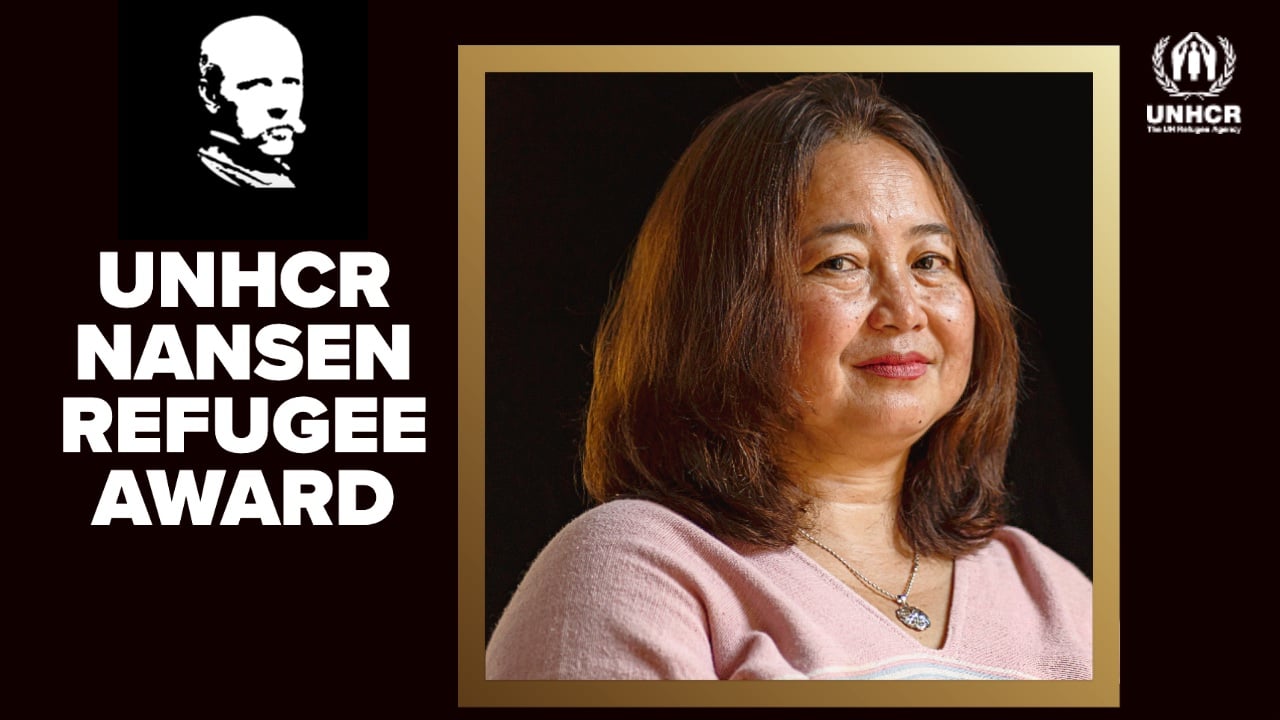DRC: 100,000 estimated displaced in last two months
DRC: 100,000 estimated displaced in last two months
UNHCR is increasingly concerned by the deteriorating humanitarian situation in the eastern Democratic Republic of the Congo (DRC) as Congolese civilians continue to flee their homes fearing reprisal attacks by the rebel Hutu militia, the so-called Democratic Forces for the Liberation of Rwanda (FDLR). We estimate that more than 100,000 people have been displaced by these raids over the past two months.
In Luofo village, some 170 km from Goma, the capital of the troubled North Kivu province, the FDLR has issued further threats against local communities. According to the local government authorities, FDLR rebels are engaged in a house-to-house terror campaign, telling those they visit: "you will all die."
The FDLR rebels already attacked Luofo and Kasiki on 17 and 18 April, killing several people, including children, and torching more than 365 homes. The population in Luofu refuses to leave the village and called for protection and humanitarian assistance.
In the nearby town of Lubero and surrounding villages, the situation of thousands of internally displaced people (IDPs) is rapidly worsening as they have not received sufficient assistance since they began arriving two months ago. The sick need immediate medical aid; at least three have died in the past few days of hunger and disease.
The situation of the local families hosting some of the displaced is becoming extremely fragile as they are running out of food and they cannot any longer support additional persons. Aid items distributed to the newly registered IDPs include hygiene kits for women, jerry cans, cups, soap, plastic basin and mosquito nets.
Some 2,300 IDPs, including 570 newly arrived displaced persons from Kasuo village, some 45 km west of Lubero, received some aid, but these meet only a fraction of current needs. Our humanitarian operations in eastern DRC are continually hampered by general lawlessness and insecurity. In addition, the remoteness of the area poses serious logistical challenges.
The FDLR stepped up its reprisal raids against civilians in North Kivu after the Congolese and Rwandan military concluded their joint offensive against the rebel group in mid-February. They also have been targeting humanitarian relief convoys, NGOs and commercial traffic.
Meanwhile, tensions are rising between the local population and IDPs sheltered in the makeshift site in Kiwanja near Rutshuru, some 80 kilometres north of Goma. In recent weeks, local residents beat several IDPs, looted their property and destroyed their homes. Although there were no deaths, one woman and a young boy were treated for minor injuries sustained during the clashes. Local police supported by UN troops quelled the disturbances within a short time.
Some local residents are accusing IDPs of collaborating with what they call criminal elements. IDPs are strongly denying these allegations, saying they were merely a victim of ethnic hatred and intolerance.
We are continually appealing to the host communities to continue to exercise tolerance and to respect the rights of IDPs seeking safety and shelter from the ongoing violence. The site shelters at least 11,100 IDPs.
UNHCR and other aid groups in the area distributed plastic sheeting to allow families to rebuild destroyed shelters.
At the height of the conflict last November, the rebels led by Laurent Nkunda destroyed and burnt six UNHCR-run sites dotted around Rutshuru. The displaced population in Kiwanja was part of the more than 50,000 IDPs who were forced to leave the destroyed sites.
Rutshuru is one of the areas worst hit by the crisis in the North Kivu province which accounts for at least one million IDPs who have been forced to flee a series of conflicts since 2006.









